10 conclusions from the 2021 Vuelta a España
Roglic's dominance, Ineos Grenadiers as king makers, Bahrain Victorious, Fabio Jakobsen's sprint success, and more
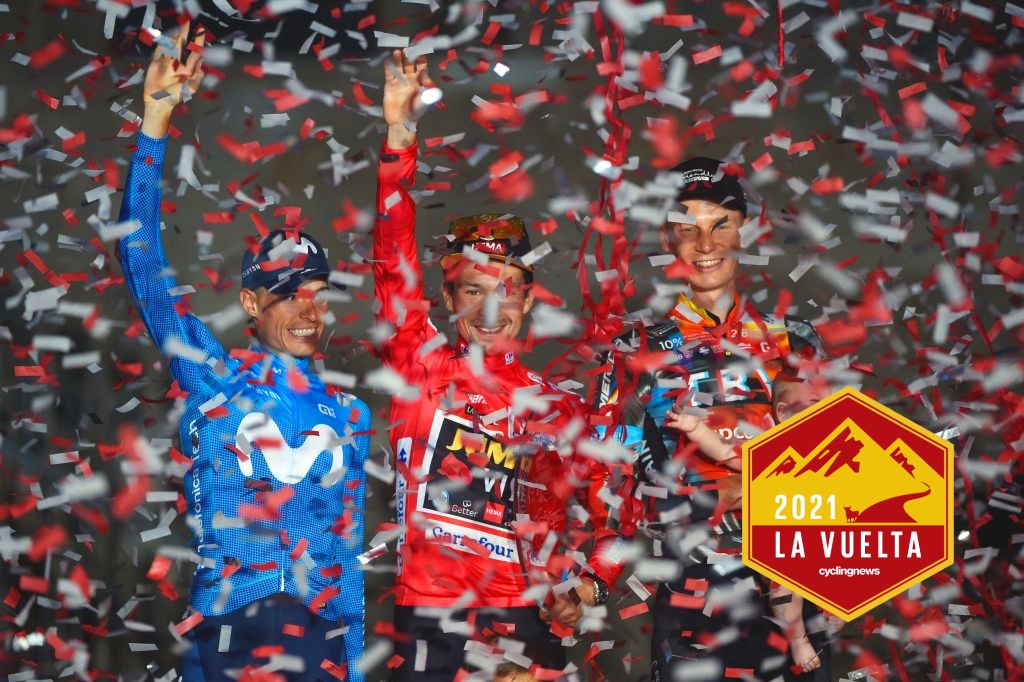
After Sunday's final stage time trial in Santiago de Compostela drew three weeks of racing to a close, the Vuelta a España is over for another year.
Primož Roglič took his third consecutive victory at the race, wrapping it up with his fourth stage win, but the final Grand Tour of the season brought much more to talk about beyond the Slovenian's domination.
From Fabio Jakobsen's sprint comeback and Magnus Cort hitting the form of his life to the power of Bahrain Victorious and the Spanish stage win drought, there has been plenty to talk about an analyse from the last three weeks of racing around Spain.
Here, we take a look at the 10 things we learned from the 2021 Vuelta a España.
Roglic still a major Grand Tour force
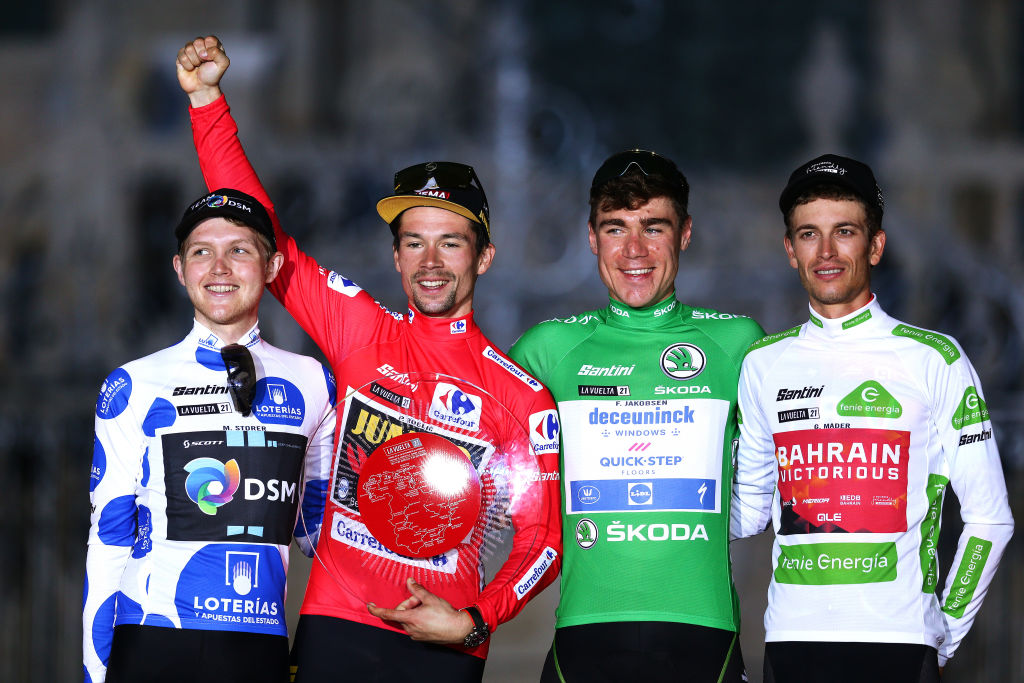
After the setbacks of a second Tour de France lost to compatriot Tadej Pogačar, it was easy to assume that Primož Roglič would have wanted to take some time out from the sport. He proved us wrong by winning the Olympic time trial.
Now, for the second year running, he also showed that his determination to succeed in Grand Tours had not been dented. His 2021 Vuelta victory is arguably even more impressive than those of 2019 and 2020.
It’s true that in 2020, Roglič won the opening stage, then took some hugely impressive (and varied) wins at the summit finish of Moncalvillo, an uphill sprint finish at Suances and a time trial in Ezaro in the third week. But his margins were far closer to the point where time bonuses were critical to his success, and Richard Carapaz gave him a much tougher run for his money than Movistar's Enric Mas did this year.
Get The Leadout Newsletter
The latest race content, interviews, features, reviews and expert buying guides, direct to your inbox!
As it was, Roglič didn’t even need the final time trial to Santiago de Compostela to mark his superiority. There were strong hints of it in his opening stage win in Burgos, more evidence without an actual win on climbs as varied as the short uphill of Cullera, the interminable slopes of Velefique and on the Almachar, during a second week transition stage. Then his victory at the Lagos de Covadonga underlined his dominance and regained him the leader’s red jersey, this time for good.
Roglič has now equalled the record for consecutive Vuelta victories held by Tony Rominger and Robert Heras – the latter the all-time Vuelta victory record holder on four. His third Grand Tour win once again boosted his credentials for renewed contention for next year. Just like in 2020, now only arguably more so.
Ineos Grenadiers go from kings to kingmakers
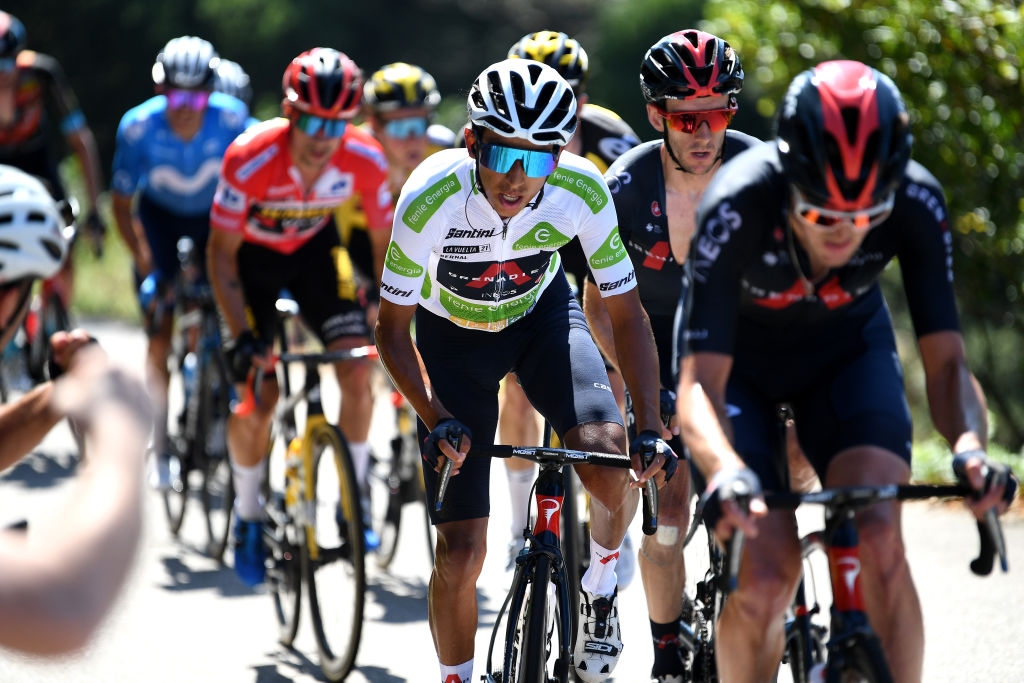
Ineos Grenadiers started the race with what was on paper the strongest team of the entire Vuelta a España, containing at least three GC options.
They had a favourite in Egan Bernal whose Giro d’Italia victory had given the Colombian both a second Grand Tour and provided confirmation that, despite his back problems, he remained a major force in stage racing.
Then there was Adam Yates and 2020 Vuelta runner-up Richard Carapaz and even speculation as to what Pavel Sivakov and Grand tour debutant Tom Pidcock might achieve on their own account.
Yet for all that huge firepower at their disposal, Ineos Grenadier's main role in the Vuelta became that of king-makers, never kings themselves.
The clearest example of that power-brokering position came in Lagos de Covadonga, of course, with Bernal’s dramatic long-distance attack that effectively became a foundation for Primož Roglič's definitive assault on the red jersey.
Then, on stage 20, Ineos Grenadiers pronounced acceleration in the final 90 kilometres and Adam Yates’ mid-stage moves benefited Jack Haig’s podium chances considerably, while also moving Yates to within striking distance of a podium spot.
While Carapaz imploded mid-Vuelta, the team’s insistence that the road would decide whether Yates or Bernal would be leader proved something of a double-edged sword.
It became increasingly obvious that both of them were roughly on the same level, but neither were at the level necessary to fight for the overall victory.
On top of which, their strategy on some early stages like the Velefique – where they tried to throw everything at Jumbo-Visma on one climb, and then left Bernal isolated in the finale – was bizarre to say the least.
Pidcock and Sivakov provided notably impressive back-up support, but probably the key takeaway for Ineos Grenadiers is that even when Bernal is not on song he can still seriously influence the outcome of a Grand Tour and come home in the top six as well. Adam Yates’ capacity to battle for a three week stage race has also been confirmed.
Fabio Jakobsen ready to contest Tour de France sprints
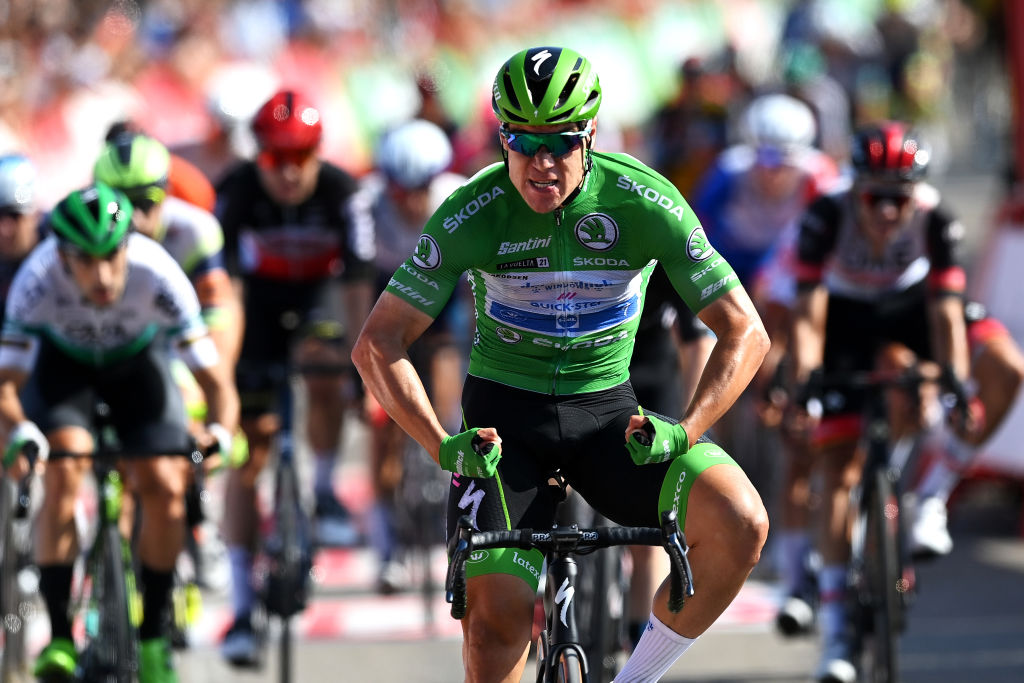
Three stages and the points jersey in the Vuelta a España is an impressive tally for any sprinter and in Fabio Jakobsen’s case, it has considerable added significance.
For reasons too well known to be worth repeating, the Deceuninck-QuickStep rider was on a comeback trail of colossal proportions this year. The Vuelta, as his first Grand Tour in that process, represented his biggest test to date, and he passed it with flying colours.
As the 25-year-old put it himself, victory in the first week at Molina de Aragon was the “end of his comeback.”
His victory dedication was for his family, team staff and the medics that helped him on that trail and, movingly, he also dedicated the win to another young Belgian rider, Bjorg Lambrecht, who never made it back home from the 2019 Tour de Pologne.
Jakobsen’s previous Grand Tour stage wins had also been in the Vuelta a España back in 2019, there couldn’t have been a more appropriate setting. A second victory at La Manga del Mar Menor provided further confirmation of his return to the top of his game. The third (and fourth of the race for Deceuninck-QuickStep) at the start of the third week set Jakobsen up in style for a defense of the points jersey.
He not only dragged himself over two very tough Vuelta mountain stages in Asturias, he also remained in the game, on the early climbs of the final ‘transition stage’ of the race on Friday, right the way through to Santiago.
In the process, he’s become the first out-and-out sprinter to win the points jersey in the Vuelta since, curiously enough, current teammate and fellow fastman Mark Cavendish in 2010.
Whether he and Cavendish, still in negotiations for 2022 with Deceuninck-QuickStep team manager Patrick Lefevere, remain in the same team next year remains to be seen. But with a contract for a further two years in the bag, Jakobsen is clearly ready to move into the biggest sprint arena of them all for his team, at the Tour de France.
Haig and Mäder on their way for Bahrain Victorious
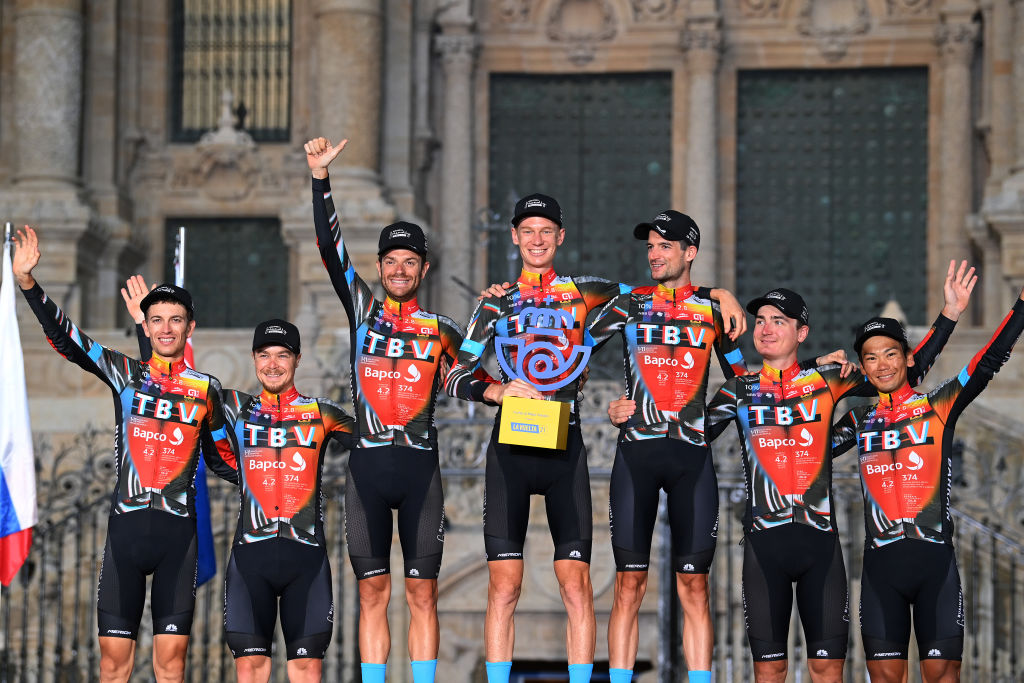
Thanks to Primož Roglič’s crash-induced disappearance from the Tour de France and his substitution at Jumbo-Visma’s helm by Jonas Vingegaard, 2020 had already produced a fine example of how teams can manage to switch leaders mid-race.
But what is notably rarer is when a team produces not just one substitute GC contender but two. In the first week of the race Bahrain Victorious had placed their hopes on Mikel Landa after his Vuelta a Burgos success had perhaps whipped up too much false hope among his supporters. But when he faltered in spectacular style, Jack Haig was waiting in the wings to take over.
Having moved into the upper echelons of the GC in the break on Balcón de Alicante, the same day that Landa began to seriously falter, the Australian proved impossible to dislodge from the upper echelons of the GC.
Gino Mäder’s progress is arguably even more remarkable given both his age and relative inexperience, as well as the depth of support he also provided first for Landa but most importantly for Haig.
Back-to-back top ten finishes in the mountains of Asturias were crowned by strong support for Haig on the latter part of stage 20, before teammate Mark Padun dropped back from the earlier break and Mäder could save his strength to make it into the Vuelta top five overall.
It's a trick Bahrain repeated following Damiano Caruso's ascension to the podium at the Giro d'Italia, though with a glut of now-proven GC riders in the squad, they'll hope to avoid those situations which provoke similar mid-Grand Tour substitutions in future.
Two steps forward, two steps back for Movistar
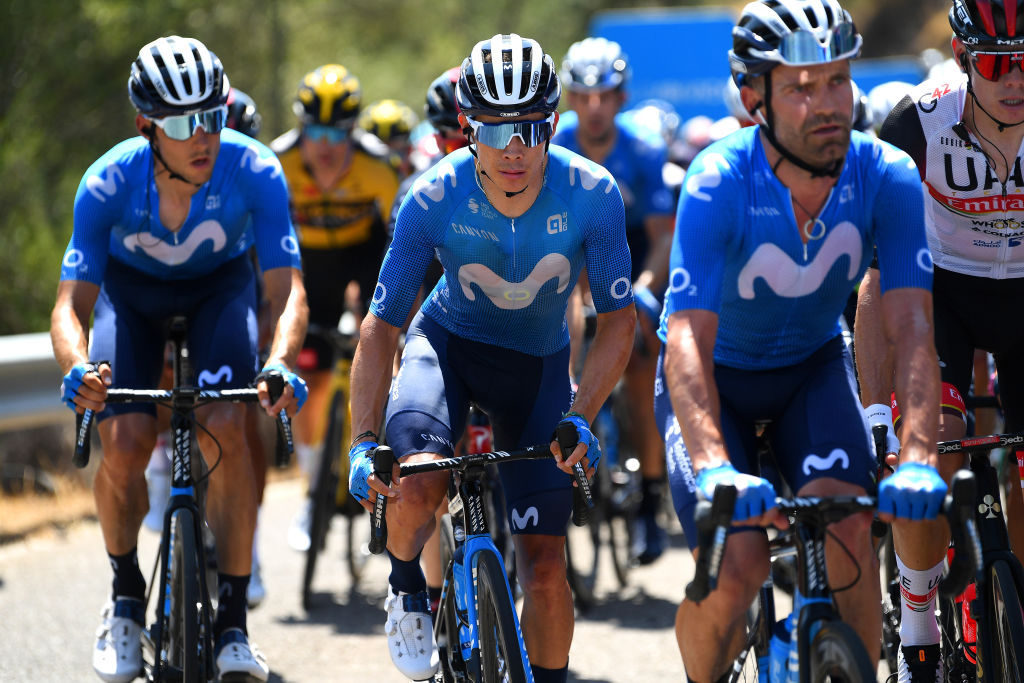
So which version of Movistar will we remember in the 2021 Vuelta? The team which managed to put a Spanish rider – Enric Mas – back on the podium of Spain’s Grand Tour for a second time in three years? The one which suffered the harrowing exit of its most emblematic rider Alejandro Valverde? Or the one which provided the colossal soap opera drama of Miguel Angel López quitting the race on stage 20 while still in the running for a top GC placing?
In truth, Movistar’s 2021 Vuelta has been a race of such radical contrasts that it’s difficult to sum them up in a single column.
On the plus side, there was the team’s return to a podium of a Grand Tour with Mas, for the first time since Valverde finished second behind Roglič in the 2019 Vuelta.
Even if, like Valverde in 2019, he never really challenged Roglič, Mas ended the race saying he had ridden better than ever before in his career. On top of that, López’s victory on the Gaimoniteiru netted the blues their first Grand Tour stage win since Marc Soler in the 2020 Vuelta.
On the downside, Valverde’s exit from the Vuelta, his first abandon in 19 years, left a huge hole in the team’s capacity to wrench the race in their favour as well as leaving them bereft of the ultra-experienced team captain.
Then there is the huge controversy generated by López decision to quit the race. For all his subsequent apologies issued by the squad and his mysterious allusion to "many factors" as the reason for his abandon, the image of the Colombian talking to his wife on his mobile as he walked toward the Movistar team car and out of the race will linger long in cycling fans' collective memories.
Spain’s desperate search for Grand Tour stage winners continues
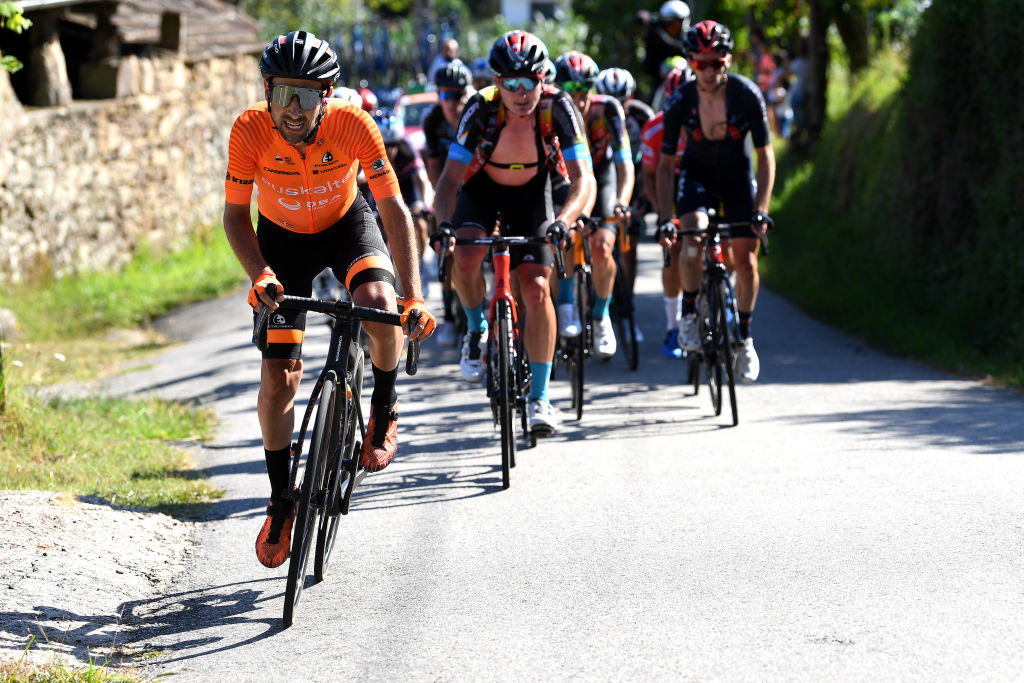
Primož Roglič says the only words he knows in Spanish are cerveza and dos mas. But anybody listening to Spanish television coverage of the Vuelta this year will surely have learned at least one other phrase, it was repeated so often: la primera victoria Española – the first Spanish victory in this year’s race.
Yet that primera victoria never materialised.
That Spain failed to win even a transition stage for the first time since 1996 represents a further blow to the country’s long-established pride in its Grand Tour record. It means that, for the first time ever, Spanish riders have completed a season without winning a single stage in the Giro, Tour, or Vuelta.
It confirms the worrying absence of breakthrough local talent in the country’s biggest bike race, as young talents like Juan Ayuso (UAE Team Emirates) or Carlos Rodriguez (Ineos-Grenadiers) wait to gain a few years more experience before tackling the Vuelta.
It also indicates a continuing over-reliance on aging stars of the ilk of Alejandro Valverde (Movistar) and Luis León Sánchez (Astana Premier Tech) – both of whom had to abandon through crashes – and on radically uneven performers like Mikel Landa.
On the plus side, the three Spanish ProTeams fought hard to maintain their visibility by getting in the breaks, and Mikel Bizkarra almost succeeded at taking a surprise last minute win on stage 20 for Euskaltel-Euskadi. And things aren’t quite as bad as in the 1996 Vuelta a España, a year where Miguel Indurain abandoned and effectively ended his career at the foot of the Covadonga Lakes and the host country had just one rider in the top 10 in Fernando Escartín, who scraped home in tenth.
But the absence of stage winners stretches far beyond the Vuelta: the last Spanish stage winner in the Giro d’Italia was Pello Bilbao (twice) in 2019, and in the Tour de France it was Omar Fraile (who also abandoned in the Vuelta this year) in 2018.
On current evidence, it seems like the Spanish will need considerably more than dos cervezas mas [two more beers] while waiting for la primera victoria Española in any Grand Tour.
A very different Vuelta a España route
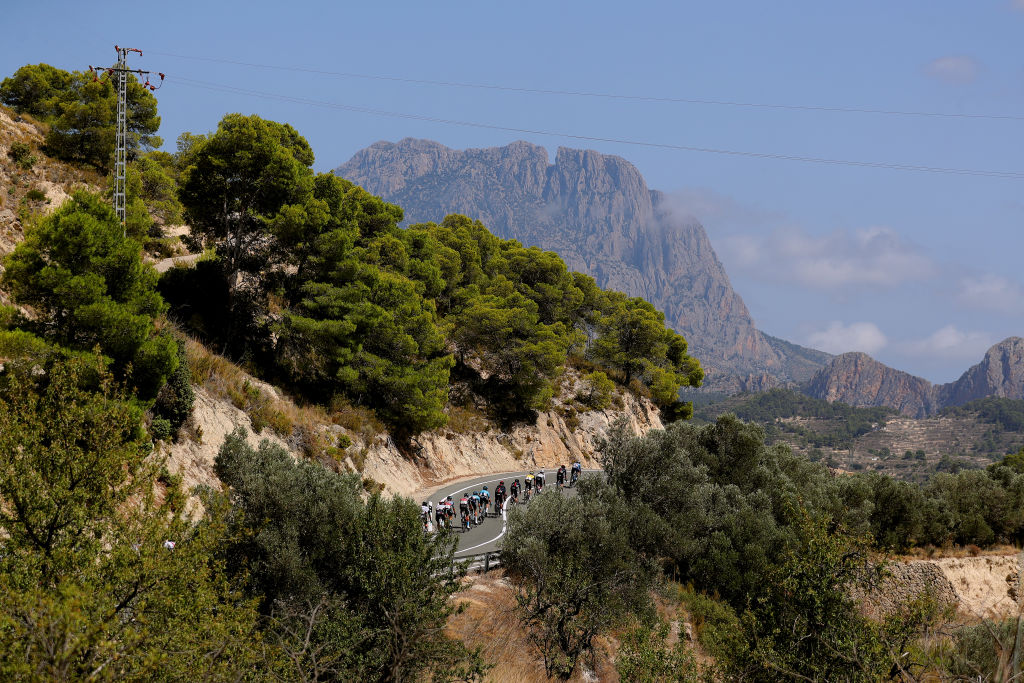
When the 2021 Vuelta route was unveiled in January, there were some ingredients that looked wearily familiar on the race’s bucket list. Nine summit finishes out of a possible 21 stages? Tick. Some brutally steep, punchy finales? Tick. A very early tough mountain stage (Picón Blanco in Burgos) to start weeding out the GC favourites? Tick. An unprecedented monster mountain climb? Tick.
However, it didn’t take too long a glance either to realise some elements were radically different. Top of the list was the first full-length time trial to close out the race since 2002. But there were also considerably more sprint stages, several stages ending after a big-ish final climb (Cordoba, El Barraco, Rincón de la Victoria) and of course that last road stage, compared by some to Liège-Bastogne-Liège, though the hills of south-west Galicia on stage 20.
Race director Javier Guillén and route designer Fernando Escartín both expressed hopes that the Vuelta would be decided on the final day’s time trial. But even though that wasn’t the case, it’s fair to say most of their experiments worked.
Egan Bernal’s attack 60 kilometres form the line on the Lagos de Covadonga stage summed up the riders’ gung-ho attitude throughout most of the race, precisely because they knew they could not risk waiting for the Roglič-shaped axe to fall on their GC hopes in the final time trial.
And on stages like the one to Balcón de Alicante, where at one point the breakaway had more riders than the GC group, or again where Ineos and then Bahrain piled on the pressure on stage 20, the terrain helped provide some genuinely entertaining racing.
Overall, you could say that only the two stages to Villuercas and Barraco failed to live up to expectations and that was largely because there had been so much attacking and high-speed moves in the first couple of hours.
But to make up for that there were some blisteringly nail-biter stages as well on days when it was least expected, such as the hugely dramatic ‘bunch-versus-breakaway’ duel on stage 19, culminating in Magnus Cort's third win. Even the biggest experiment of all – the series of smaller, harder climbs in Galicia on stage 20 – produced high-quality racing all the way to the line.
Intermarché-Wanty-Gobert punch well above their weight
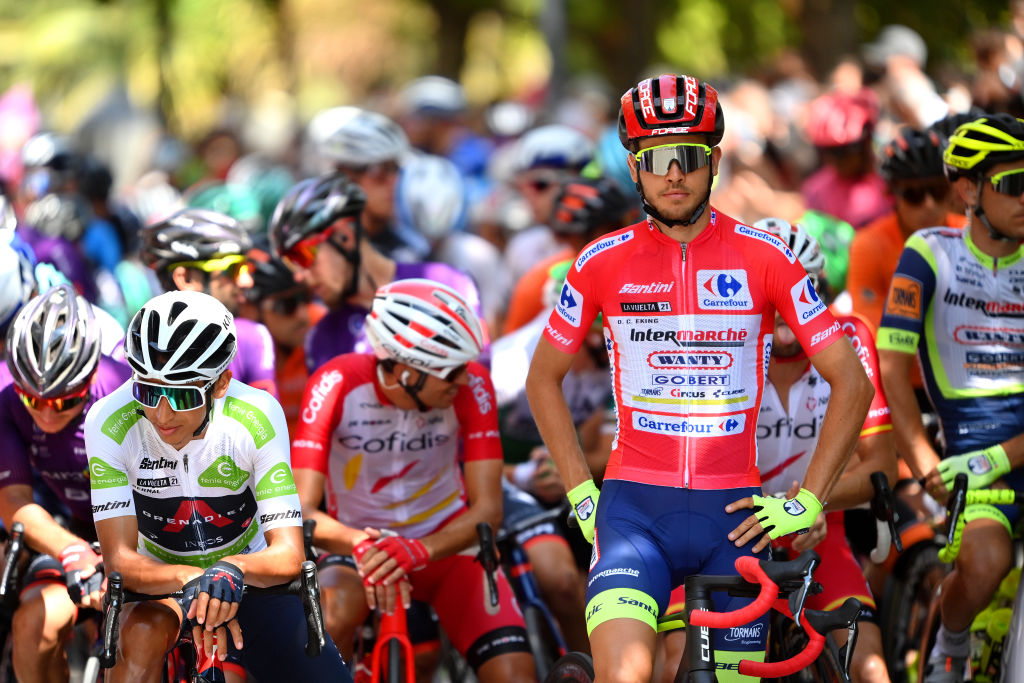
One stage win and nearly half the race in the red jersey for any team that tackles Grand Tours with low-key aspirations represents a considerable achievement.
But if it is possible to view Odd Christian Eiking’s move into the lead as a lucky consequence of being in the right break at the right time, the Intermarché-Wanty-Gobert racer’s hold on red proved so unexpectedly strong he was even asked if he thought he could win the Vuelta outright.
Eiking’s tenacious defence of the red jersey fell apart on the road to Lagos de Covadonga, with a nasty crash to cap his rough day. But his team’s magnificent work in the two stages in Extremadura, particularly the second to El Barracco, showed that it was not just the Norwegian who had adapted rapidly to his new position and was capable of punching off their collective weight.
If Eiking endured in the top spot far longer than expected, too, his teammate Rein Taaramäe had already made the race a success for his squad, with a stage win at Picón Blanco and two days in red.
Spare a thought, too, for Louis Meintjes who was heading for his best placing in a Grand Tour in years. After a strong start to his career, then several years meandering on the outer rims of GC battles, Meintjes was running 10th and looking strong in the third week of the race when a mid-stage crash knocked him out of the battle. But overall, the Belgian team’s Vuelta performance could not be faulted.
Team DSM find their stage-winning mojo again with Storer and Bardet
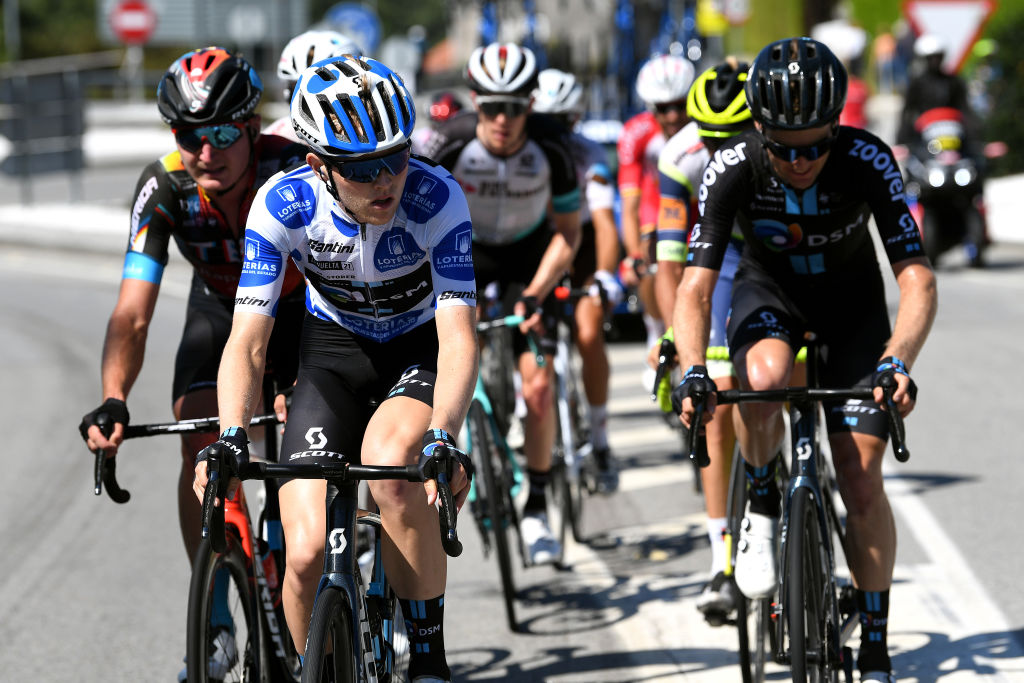
For one Team DSM rider, stage victories in the Vuelta (and the King of the Mountains jersey) represented the dramatic step up in his career that he had been seeking for years. For another, victory in the Vuelta represented the step towards a more liberated approach in Grand Tour racing after years of being overly tied to the GC battle.
For DSM, the hat-trick of Vuelta stage wins could not have come at a better time after a season which threatened to contrast only too poorly with their Grand Tour track record in 2020.
Michael Storer’s twin solo paths to victory, the first in a Grand Tour and just weeks after his long sought debut wins as a pro in the Tour de l’Ain, came in impressively contrasting circumstances.
One was at the summit finish on the race’s first full mountain stage, to the Balcón de Alicante, and the other just four days later after taking part in a long break to Rincon de la Victoria and dropping the rest of the move on the Puerto de Almachar climb - where Roglič would also later attack.
Romain Bardet’s triumph came after a bad crash in the first week (and that one after another fall in the Vuelta a Burgos) and represented a key return to top condition for the Frenchman. On top of that, he was able to take his first win in a Grand Tour since 2017.
Curiously enough, the two riders are heading in different directions team-wise: the 24-year-old Australian heading to French squad Groupama-FDJ in 2022, and for whom this race represented a swansong with his current team.
Bardet, on the other hand, has just joined DSM, and his Vuelta win confirmed his integration with a new strategy in his career of aiming for stage wins as well as making GC bids, in a team where he was no longer automatically their Grand Tour leader. However, their career paths crossed in style at the Vuelta.
A rainbow jersey bid next up for Magnus Cort?
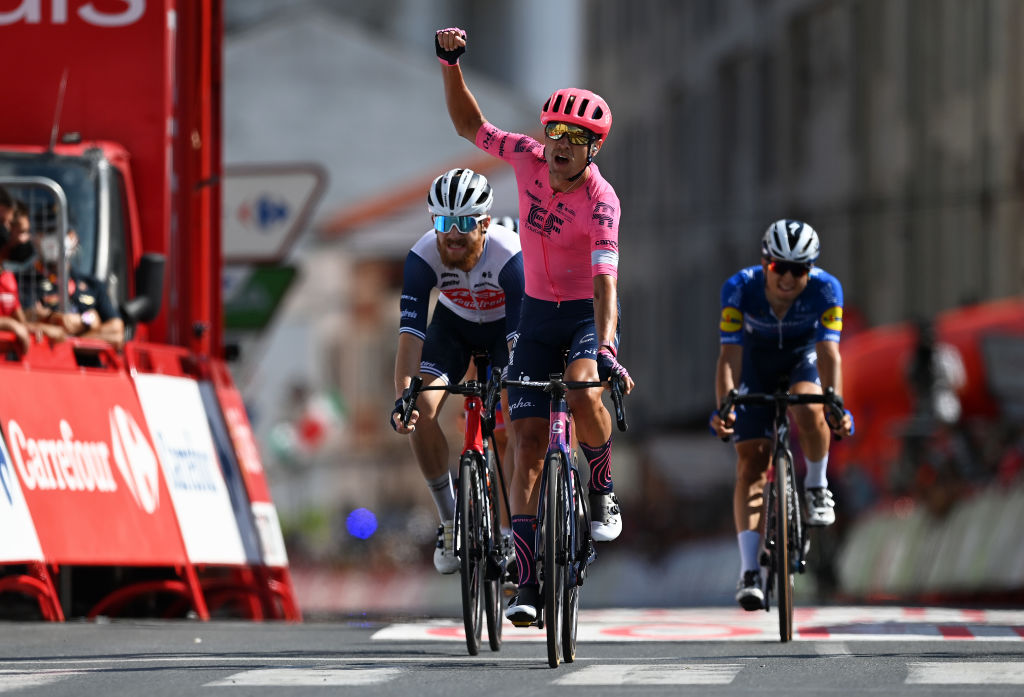
Early in the evening of the final stage of the Vuelta, it was confirmed that Magnus Cort would be crowned the Most Combative Racer of the 2021 race, and given his hat-trick of stage wins spread across the three weeks, it was fully deserved
The EF Education-Nippo racer’s ability to win in such radically different circumstances, and lose a couple of times by such narrow margins, produced some of the most thrilling racing of the Vuelta.
From his ability to fend off Primož Roglič in the closing metres of the climb to Cullera, to his late ambush of the Team BikeExchange train in Cordoba, and his dash for the line ahead of the bunch – and with great help from Lawson Craddock – at Monforte de Lemos, all of his wins were highly memorable.
So too was his last-second defeat at the Valdepeñas de Jaén summit finish, not to mention Sunday's second place, where he came within a whisker of beating Roglic in the final time trial in Santiago.
In the Vuelta, Cort’s constant run of success helped EF Education-Nippo overcome their loss of Hugh Carthy after the 2020 podium finisher abandoned in the first week.
It’s now legitimate to ask if Cort’s range of abilities can give Denmark their second rainbow jersey title in three years in the upcoming Road World Championships. Roll on Flanders and the men’s road race on September 26.
Alasdair Fotheringham has been reporting on cycling since 1991. He has covered every Tour de France since 1992 bar one, as well as numerous other bike races of all shapes and sizes, ranging from the Olympic Games in 2008 to the now sadly defunct Subida a Urkiola hill climb in Spain. As well as working for Cyclingnews, he has also written for The Independent, The Guardian, ProCycling, The Express and Reuters.
